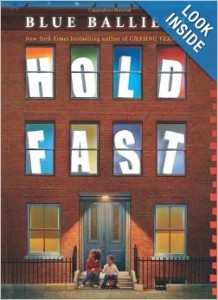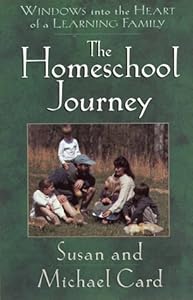 The Book Whisperer: Awakening the Inner Reader in Every Child by Donalyn Miller, sixth grade language arts and social studies teacher at Trinity Meadows Intermediate School in Keller, Texas.
The Book Whisperer: Awakening the Inner Reader in Every Child by Donalyn Miller, sixth grade language arts and social studies teacher at Trinity Meadows Intermediate School in Keller, Texas.
Ms. Keller’s thesis can be summarized in two sentences: To make children into lifelong readers, surround them with books and let them read whatever they want to read. Treat them like readers, and they will become readers.
I’ve been following this plan in our homeschool for about twenty-five years now, with mixed results. Most of my eight children are readers. Several of them are voracious readers, the kind I am and the sort Ms. Miller describes herself as:
“I am a reader, a flashlight-under-the-covers, carries-a-book-everywhere-I-go, don’t-look-at-my-Amazon-bill reader. I choose purses based on whether I can cram a paperback into them, and my books are the first items I pack into a suitcase. I am the person whom family and friends call when they need a book recommendation or cannot remember who wrote Heidi. (It was Johanna Spyri.)”
However, even with all this reading environment and encouragement and, yes, pressure, I have one child who does not see herself as a reader (she reads, just says she hates to read) and another who has quit reading for pleasure for the last two or three years at least. Unfortunately, Ms. Miller’s book gave me very few ideas about how to re-awaken the love of reading in my son or how to instill a love for reading in my daughter. I already let them read pretty much anything they want to read. I already suggest books for them, buy books for them, borrow books for them, encourage them to read about subjects they love, and show them daily how much reading means to me by reading as much as I can, anywhere I can. Our house is full of good books.
The Book Whisperer is a very public school, teacher-ish, kind of book, but it is a good resource for teachers of reading in school settings. It did spark a couple of ideas in this homeschool mom mind of mine: I could have a time (half an hour? an hour?) each day when we participate in ye olde public school D.E.A.R (Drop Everything and READ). I could require them to read 40 books for the school year (a requirement Ms. Miller has for her sixth graders) and see what happens. I could keep giving my daughter piles of books that I think she might like until she finds one she loves. It hasn’t worked yet, but it might still click one day.




